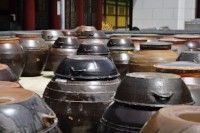Destinations List
South Korea


About South Korea (Land of the Morning Calm)
South Korea (officially the Republic of Korea) is a country full of rich history with much of the culture and customs still existing today as they have for centuries. It is a sovereign state in East Asia and constitutes the southern part of the Korean Peninsula. The capital of South Korea, Seoul, is the 5th largest metropolitan area in the world (25.5 million).
Since the end of the Korean War in 1953, South Korea has undertaken an unrelenting drive toward modernization. Yet despite the energetic change of pace, the country has not lost its sense of history - thanks to its many ancient temples, traditional houses, and tranquil gardens. It is the ever-shifting swirl of old and new that makes South Korea an intriguing place to be.
Over 70% of the land is mountainous with the eastern regions consisting of mainly rugged mountain ranges and deep valleys. Most of the larger rivers and forests are located in the west. The DMZ (Demilitarized Zone), which separates North and South Korea, is 160 miles long.
Although they have been influenced by other cultures, Koreans have maintained their own distinctive language, culture, and customs. It is a family-oriented society which, even today, retains the basic patterns and manners of family-centered life.

Kimchi pots - 40 lbs. of kimchi (spicy and fermented seasoned cabbage of which there are more than 250 kinds) is consumed annually by the average Korean.
The Korean alphabet, known as Hangual, has been used to write the Korean language since the 15th century. Rachel (2016 IFYE) found it a simple alphabet to learn as a foreigner and indicates that there were some similarities to the English language. She says she also learned enough Korean language to feel comfortable while traveling and to anticipate the usual questions she would be asked.
Agriculture in Korea is diverse; however, much is still imported such as fruit from China and beef from the United States. Agriculture in Korea is still a labor intensive industry with the farms employing local villagers, many of whom are women. A top agriculture product that is grown in Korea is rice of many different varieties.
Koreans are in tune with their bodies – focusing on nutrition and healthy eating habits. They also follow Eastern Asian medicine principles, which claims that one should eat cold food when the weather is cold and hot food when the weather is warm.
Agriculture
Agricultural land: 16.2%
Arable land: 13.5%
Permanent crops: 2.1%
Permanent pasture: 0.6%
Forest: 64.2%
What to Expect:
The Korea IFYE program is supported through the Korea 4-H Association. IFYEs will arrive in Seoul and will spend a couple of days here in the capital of South Korea before arriving at their first host family. Participants will travel by train to host families which will be rural-based.
Rachel (2016 IFYE) indicates, "I had the time of my life in Korea and observed that Koreans are kind and hardworking people who take great pride in their country. This experience of staying with host families is something I will always cherish. I was able to fully experience learning about their culture through daily living, something not a casual tourist would get to experience."
From this experience, she was able to not only experience Korean agriculture but also the culture.
IFYEs at Work and Play

Program Information:
Applications for the 2026 program can be found here: IFYE Outbound Application Process for 2026
Application Deadline: March 1, 2026
For additional information, please contact: Traci Ross Sherlock, Interim National Program Director tsherlock@ifyeusa.org


